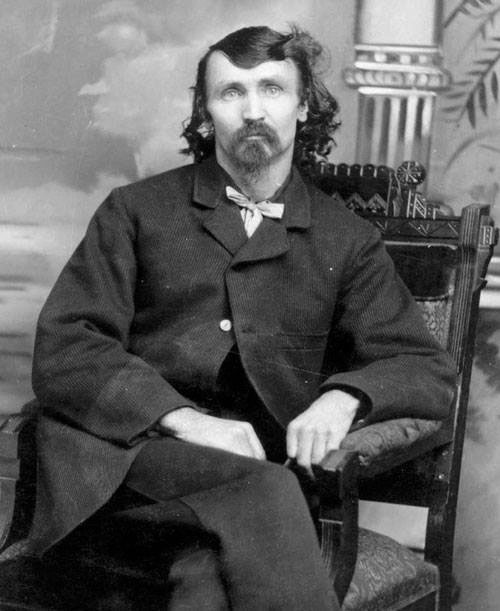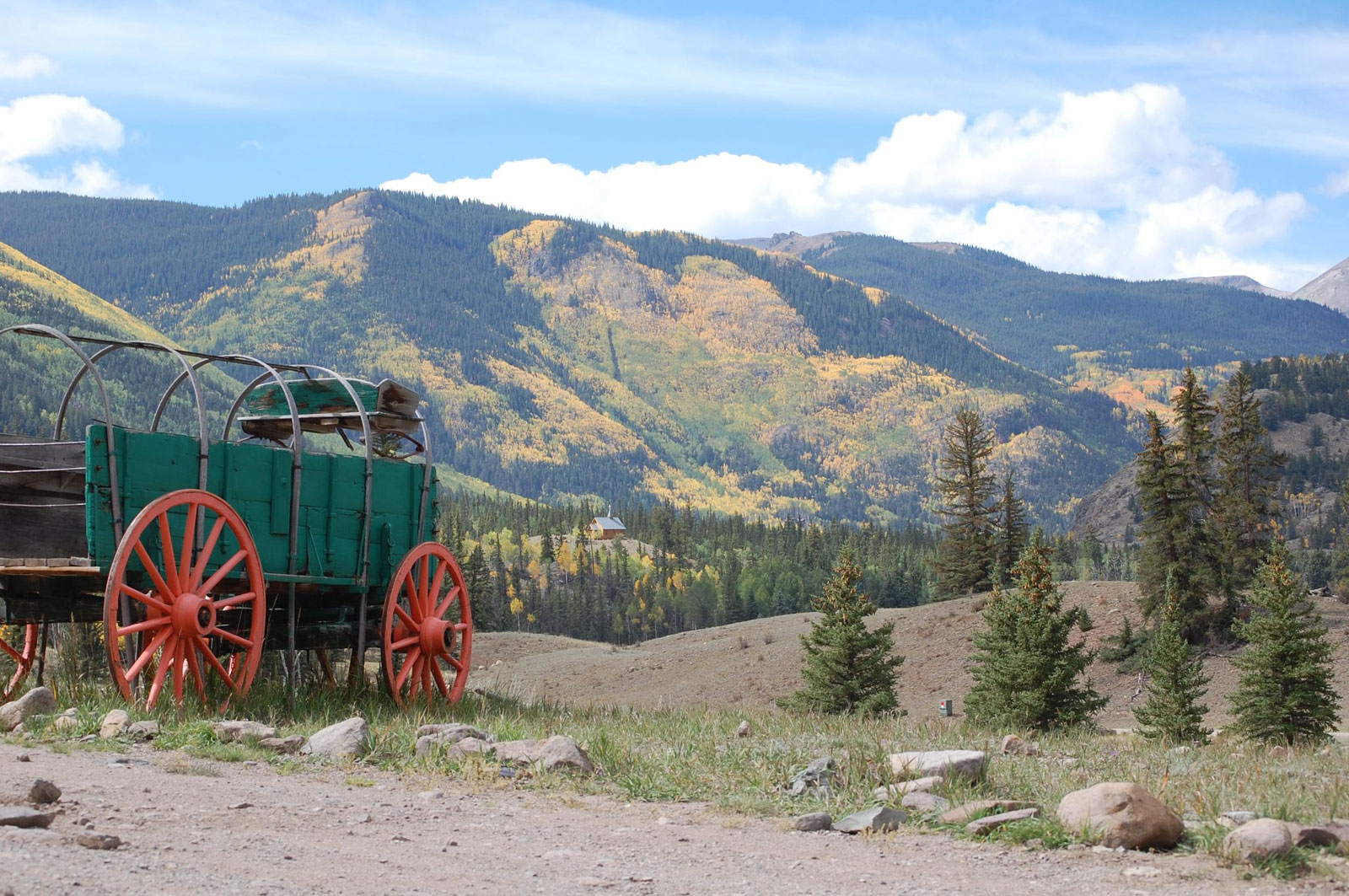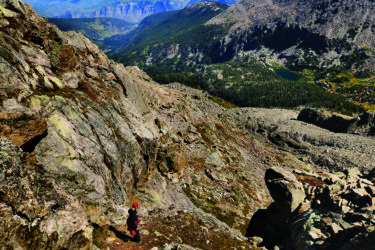The Local newsletter is your free, daily guide to life in Colorado. For locals, by locals.
Colorado has always attracted scrappy, independent types. The abundance of precious metals, mountains, rivers, and open spaces have lured many a fortune seeker and ski bum to our slice of the Rockies, even before it became a state. Alferd (née Alfred) G. Packer—Colorado’s infamous cannibal—was one of them.
In the winter of 1874, Packer and a group of prospectors—Israel Swan, Shannon Wilson Bell, George Noon, Frank Miller, and James Humphrey—left Chief Ouray’s camp near what is now Montrose to travel through the San Juan Mountains on their way to Los Piños Indian Agency near Saguache. By February, deep snows and frigid temperatures had slowed the men’s progress, and by the time they reached the base of Slumgullion Pass outside of present-day Lake City, they were near starvation.


In April, Packer—looking remarkably fit and well-fed—turned up alone at Los Piños, saying his companions had perished in a blizzard. A month later, he recanted and gave the first of several confessions, recounting a series of accidents, murders, and cannibalism for the sake of survival. A search party eventually located the bodies of Packer’s companions at the base of Slumgullion Pass, displaying evidence of hatchet and gunshot wounds and cannibalism. Packer was jailed in Saguache, but escaped and was on the run for a number of years. Packer was apprehended after being found in Wyoming in March 1883 and charged with the murders of all five men and sentenced to death. He was retried in 1886 and sentenced to 40 years in the state penitentiary and was paroled in 1901. He moved to Littleton, where he remained until his death in 1907.
As recently as 2000, forensic scientists and other experts have studied the evidence in the infamous “Colorado Cannibal” case (the bodies of the victims were first exhumed in 1989), but no definitive conclusion has been reached as to whether or not Packer was a cold-blooded murderer or as much a victim of circumstance as his fellow miners.
To most Coloradans, it doesn’t matter: Alferd Packer is a folk hero, memorialized in everything from film (catch South Park creators Matt Stone and Trey Parker’s tribute, Cannibal! The Musical) to food service (A University of Colorado Boulder cafeteria is named the Alferd Packer Restaurant & Grill; when it first opened in 1968, its catchphrase was, “Have a friend for lunch!” And the now-closed Alfie Packer’s restaurant in Vail was the epicenter of après culture in the 1970s and early ’80s).
For the residents of Lake City, Packer’s gruesome legacy is simply part of the town’s history and tourism. Visitors come to explore the famed Alferd Packer Massacre Site and Cannibal Plateau, where the remains were found, examine the artifacts at the (excellent) Lake City Museum, and have a pint and, er, bite at Packer Saloon & Cannibal Grill, but they return because of the isolated hamlet’s Old West authenticity and the region’s beguiling lakes, forests, and recreational opportunities.
The Packer Days festival was established in 1983 and in its heyday, embraced the morbid with a touch of whimsy through events like coffin races. The festival went on hiatus in 2004, but on May 27–29, Packer Days will be brought back from the dead (so to speak) with new events and activities.
“Part of the goal is to revive shoulder season tourism, because it can be tough for small mountain towns like ours with a short peak season,” says Ami Lee Frierson, executive director for the Lake City-Hinsdale County Chamber of Commerce. “But it’s also about sharing a part of our history, and how the early settlers to this region lived, given the harsh environment. Some people are bothered by the ideas of commemorating cannibalism, but the idea behind Packer Days is about celebrating survivalism, backcountry skills, and the pioneer spirit.”
The signature event is the Run for Your Life Survival 5k, a team race that includes starting a fire, splinting and evacuating an “injured” member, and building a shelter. “It could be spring weather or snowing, which really brings home the entire point of the race,” says Frierson.
Other family-friendly offerings include a Mystery Meat Cook-off, backcountry survival class, Scavenger Hunt and a lecture on Packer given by a local historian. All events besides the race are free and celebrate a unique (and somewhat disturbing) piece of Colorado history.
If you go: Packer Days take place May 27–29 in Lake City, Colorado. For lodging and festival info, visit lakecity.com.








